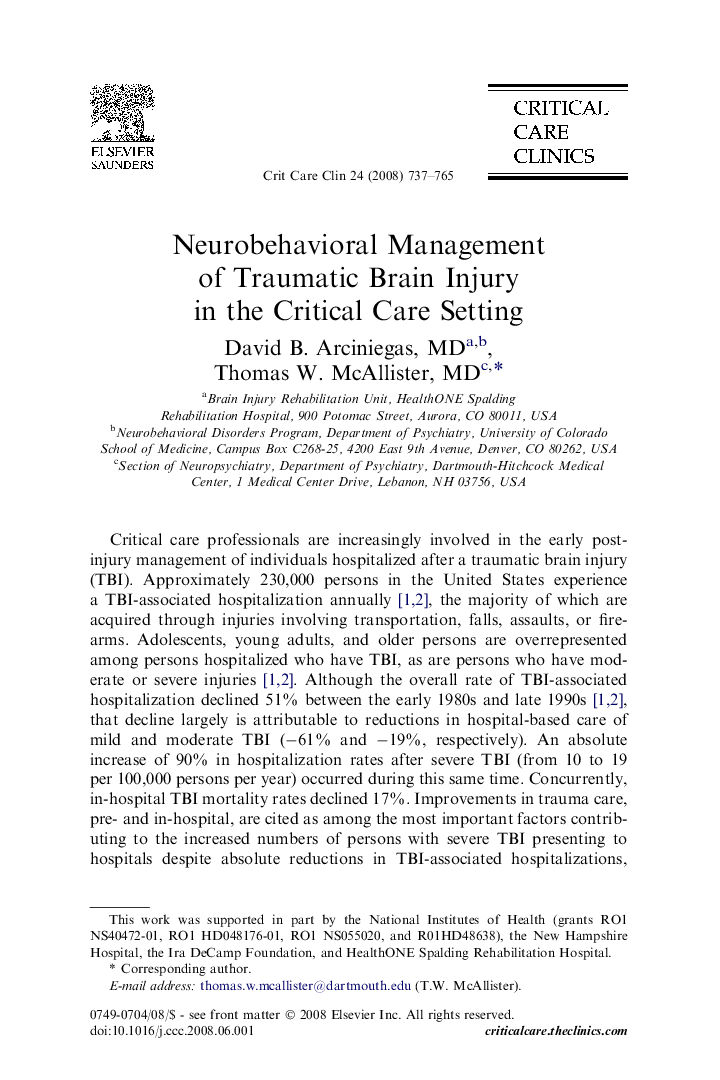| Article ID | Journal | Published Year | Pages | File Type |
|---|---|---|---|---|
| 3108813 | Critical Care Clinics | 2008 | 29 Pages |
Traumatic brain injury (TBI) results in approximately 230,000 hospitalizations annually in the United States. Advances in the acute management of TBI have improved survival after TBI. Many TBI survivors develop neurobehavioral disturbances in the acute post-injury period. Neurobehavioral sequelae present clinical management challenges for critical care professionals. This article defines and describes TBI and reviews its common neuroanatomic and neurobehavioral consequences. These disturbances are organized under the framework of posttraumatic encephalopathy, and the characteristic forms and stages of recovery of this condition are discussed. Recommendations regarding evaluation and management of posttraumatic neurobehavioral problems in the critical care setting are offered.
